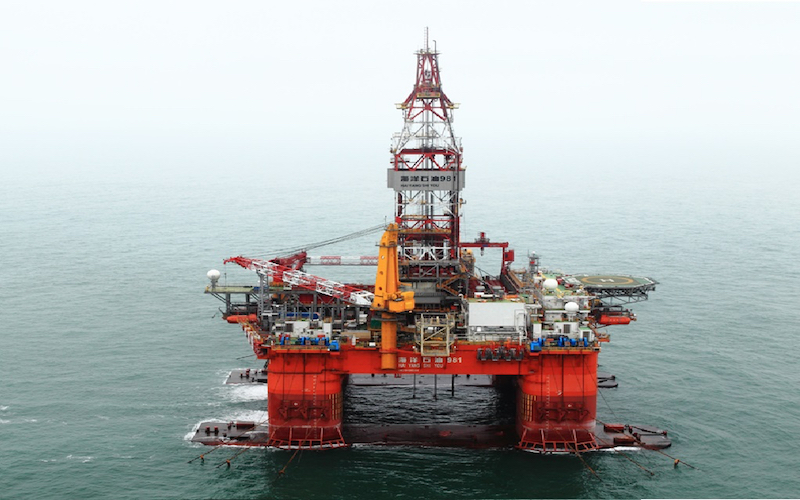
China Moved Its Oil Rig: So What?
In The Art of War, Sun Tzu commented that “the supreme art of war is to subdue the enemy without fighting.” The text was used for hundreds of years as one of the classics to be recited on the exam to gain access to the Imperial Chinese Bureaucracy. By removing the oil rig China had placed in disputed waters, it seems like this line of thinking has made its way back into the strategic planning of Chinese leaders.
Oil rig HYSY 981 had been operating near the disputed Paracel Islands in the South China Sea since May 2. Though Vietnam claims the islands are part of its exclusive economic zone, China has claimed the islands and their surrounding waters as part of its controversial nine-dash line. This line has caused ongoing disputes with most of the countries that border the South China Sea, at times resulting in naval skirmishes.
On July 16, China moved the rig out of disputed waters, almost a month ahead of its scheduled departure on August 15. A spokesman for the Chinese foreign ministry reported that the rig was being redeployed to north of Hainan Island, specifying that the move had “nothing to do with any external factor.” Xinhua news agency reported that China National Petroleum Corp (CNPC), which operated the rig, had successfully completed the exploratory drilling.
Different sources reported different reasons for the early move. Reuters quoted Wu Shicun, president of a think tank on Hainan, as saying that the rig finished early because of “good weather before the typhoon season began.”
HYSY 981 is China’s most advanced and most capable oil rig, and it would make sense for CNPC to protect such a valuable asset. After all, Sun Tzu also said “even the finest sword plunged into salt water will eventually rust.” But the sudden departure suggests that with sufficient advanced notice, the rig could have been moved out of the way of an oncoming typhoon.
An alternative explanation is that China had been sufficiently cowed into moving the rig. And it is true that Vietnamese vessels did attempt to remove the oil rig. But the Vietnamese naval ships were repulsed by the large Chinese force defending the rig, which consisted of armed vessels as well as aerial support, so it seems doubtful that China was scared into moving the rig.
The remaining explanation is that China was not forced to move the rig, but rather chose to do so. China had made its point. It had demonstrated that it could operate with relative impunity in disputed waters. Though placing the oil rig in disputed waters provoked vigorous responses from Vietnam, the US State Department’s statement was much more muted. Vietnam was essentially powerless to remove the rig. There were clashes at sea where Vietnamese forces attempted to remove the rig, but Clint Richards reports that Vietnam “suffered 27 damaged boats as well as 15 injured surveillance officers” while China vessels suffered little damage.
China has shown its power vis-à-vis Vietnam—and that is why this article began with a quotation from Sun Tzu. The reason he said “the supreme art of war is to subdue the enemy without fighting” is because he considered the psychological aspects of war to be one of the most important facets of conflict. A mentally defeated enemy, he reasoned, would be more likely to run away. By subduing the enemy without fighting, Sun Tzu meant that one ought to scare the enemy until they will not fight anymore.
According to this line of thinking, China moved the oil rig because its job was finished; it demonstrated what it was meant to demonstrate. In revealing that it can exert its will wherever it pleases, China is attempting to wage such psychological warfare. However, there is a flaw with this plan. While China may have shown its power vis-à-vis the Vietnamese armed forces, the Vietnamese armed forces were never a real threat to Chinese influence. China’s real competitors for influence in Asia are the United States and Japan, and deploying an oil rig is unlikely to faze either of these powers.
In short, China should have better considered its intended audience before placing the oil rig in disputed waters. Withdrawing the oil rig made a statement that China feels it has sufficiently projected its capabilities, but while it may have shown up Vietnam, the United States and Japan remain nonplussed.

